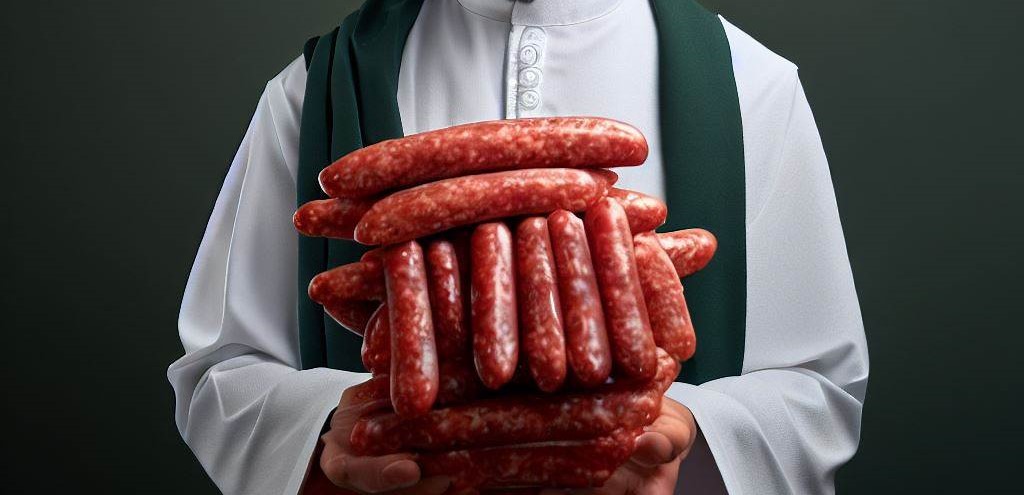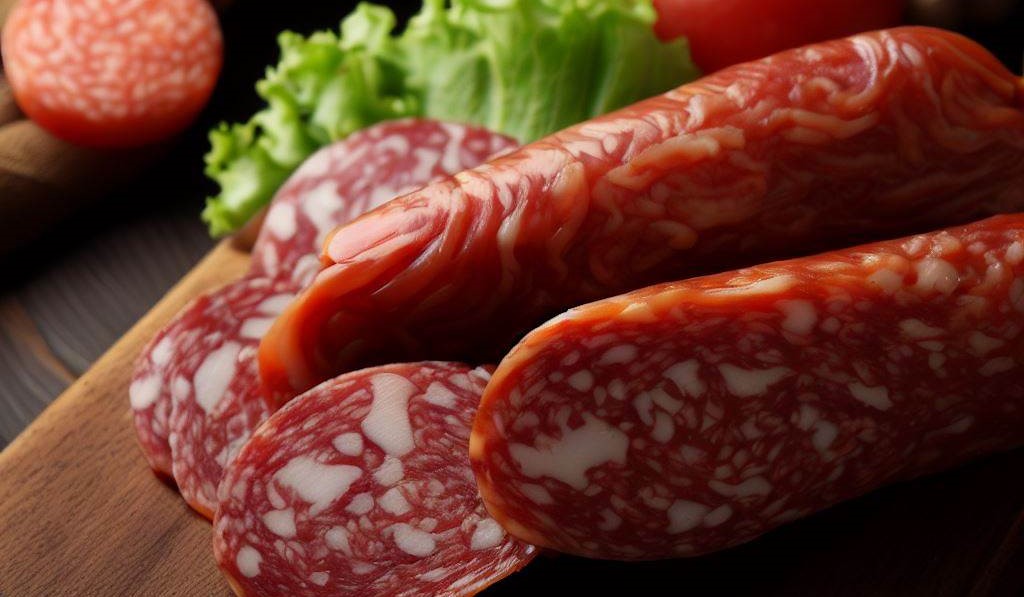Salami is a type of sausage that many people enjoy. However, if you follow Islamic dietary rules, you might wonder if salami is halal (allowed) or haram (not allowed). The two main things that decide this are the type of meat and the way the salami is made. This article will explain these factors in detail, helping you understand when salami can be considered halal.
What Is Salami?
Salami is a type of cured sausage made from ground meat, such as beef, pork, or veal, mixed with various spices and seasonings. It is then fermented and air-dried, giving it its distinctive flavor. Traditional salami recipes may vary across different cultures and regions, resulting in a wide range of ingredients and preparation methods.

Is Salami Halal?
The answer to whether salami is halal isn’t a simple yes or no. Instead, it depends on two key aspects: the kind of meat used and how it’s prepared.
Salami can be made from meats like pork, beef, chicken, or even deer. If the meat comes from a pig, the salami is haram or forbidden. However, if it’s from an animal that is generally considered halal, such as a cow or chicken, whether it’s halal or not depends on the slaughter process and the way the salami is made.
Understanding Halal Slaughter
In Islam, the animal must be slaughtered according to specific Islamic guidelines for meat to be considered halal. These include invoking the name of Allah (God) at the time of slaughter, ensuring the animal is healthy, using a sharp knife to cause minimal suffering, and draining the animal’s blood completely.
The Preparation Process of Salami
Beyond the method of slaughter, the preparation process of salami must also adhere to halal guidelines. This includes using halal-friendly fermentation agents and preventing cross-contamination with haram substances. It will be halal if the salami is made from halal animals and adheres to these halal restrictions and guidelines.
Can You Get Halal Salami?

Yes, it’s possible to find halal salami. The increasing demand for global halal food has led many manufacturers to produce salami that adheres to halal standards.
This salami is typically made from halal-certified beef, chicken, or turkey. Halal meat is sourced from animals slaughtered following halal guidelines, and turning the meat into salami aligns with halal practices.
Understanding Halal Certification
When buying halal salami, looking for a reliable halal certification is essential. Many countries have halal certification bodies that authenticate that a product is halal, giving consumers confidence in their food choices.
Is Salami Pork, Yes or No?
Well, the answer can be both yes and no. Salami isn’t made from one specific kind of meat. Traditional Italian salami, for example, is often made from pork. However, other types of salami can be made from beef, chicken, or turkey. The critical thing to remember is that the type of meat used will determine if the salami is halal or haram.
Pork vs. Chicken: Which is Healthier?
Pork and chicken both have their nutritional benefits. Chicken is leaner and lower in fat, while Pork is a good source of essential vitamins and minerals. The healthiness depends on the cut and preparation. I recommend watching the informative video “Pork vs. Chicken: A Comparative Analysis” to explore this further.
FAQ
Many supermarkets, halal meat stores, and online food retailers offer halal salami. Always look for a credible halal certification on the packaging.
Look for products that have been certified by a reputable halal certification body. These organizations ensure that the products meet all halal criteria.
Yes, as long as the meat is from a halal animal and is slaughtered and processed according to Islamic laws. Many non-Muslim countries have halal certification bodies that certify halal products.
All ingredients, including spices and other additives, must be halal for salami to be halal. This means they must not contain haram elements, such as alcohol or pork derivatives.
Not necessarily. While turkey is a halal animal, the slaughter and processing methods must also adhere to Islamic laws for the turkey salami to be considered halal. Always look for a halal certification when buying turkey salami.
It’s best to avoid the product or seek clarification from the manufacturer or a knowledgeable authority if in doubt. In Islam, it’s better to avoid halal and haram.
Wrap Up
The question, “Is salami halal?” has a nuanced answer. While salami can be halal or haram, it depends on the meat’s source and the preparation method. Ensuring that the meat source is halal, slaughtered according to Islamic guidelines, and prepared using halal-friendly methods are the keys to having halal salami. Look for products with credible halal certification to ensure adherence to these guidelines.
Lastly, Read More:

